Tingling in Breast While Breastfeeding: Causes and How to Deal With It
- Is Tingling in Breasts Normal While Breastfeeding?
- What Causes Tingling in the Breasts During Breastfeeding?
- How to Deal With Tingling of Breast at Home?
- When to See a Doctor for Breast Tingling Problems
- FAQs
Have you ever experienced a tingly sensation in breasts during breastfeeding? During pregnancy, a woman’s body starts to change to accommodate the growing child and make ways to provide for the child soon after birth. One of the most essential preparational changes in a woman’s body is the breasts, and one of the early and common symptoms is tingling in the breasts while breastfeeding.
To remain healthy, babies need to be breastfed multiple times a day, so the brain hormones and the milk ducts will need to work around the clock to provide enough milk for your little one. All this starts before your baby is born and can continue even during breastfeeding.
These changes, along with a few other factors, are responsible for the tingling sensation in the breasts, especially during breastfeeding. Let us dig deeper into the reasons behind this sensation and how it can be dealt with
Is Tingling in Breasts Normal While Breastfeeding?
If you have ever asked yourself: is tingling in the breast during breastfeeding dangerous? You can rest assured that it is perfectly normal for breastfeeding mothers to experience a tingling sensation in the breasts during this time. Often, this tingling sensation is caused by the let-down of milk, but there could be other reasons that may require you to visit a doctor for treatment.
What Causes Tingling in the Breasts During Breastfeeding?

A few factors cause the sensation of tingly breasts during nursing. These are:
1. The Let-Down Reflex
During breastfeeding, mothers sometimes feel a tingling sensation that quickly goes away. This sensation can sometimes be painful, like a pins and needles sensation, and it is the sensation that occurs when the milk is let down, when the baby latches on (1). The love hormone Oxytocin, produced by the pituitary gland, helps to push out the milk (2). Not all women have the same experience with the let-down reflex. Some feel it as twinges that occur deep in the breasts or as the tingling that occurs before or after you feed your baby. Other mothers do not feel this at all.
2. Mastitis
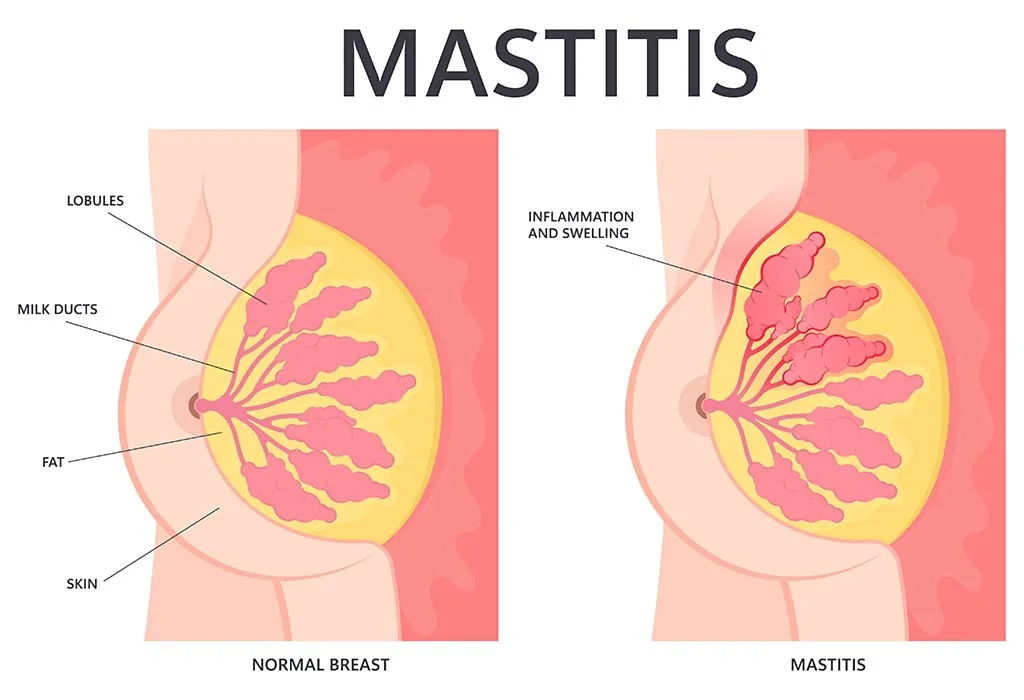
There are times when the milk ducts in the breasts can get clogged, resulting in improper drainage of breastmilk and sometimes causing the nipple skin to break. Clogged milk ducts can lead to infections in the breast that leave it tender and red and may even cause you to become feverish. This infection is called mastitis. This could lead you to experience a sharp tingly pain in breast breastfeeding.
3. Excessive Milk Production
Some mothers will find that they produce too much milk; it can even cause your baby to spit or cough a little during feeding. This happens in mothers who have a more forceful let-down reflex, which can cause a tingling sensation in the breast during breastfeeding. Most mothers find that their bodies will adjust to the amount that their babies drink. For others, they may need to take a few steps to help settle or relieve the condition with the help of the doctor or midwife.
4. Engorgement of Breasts
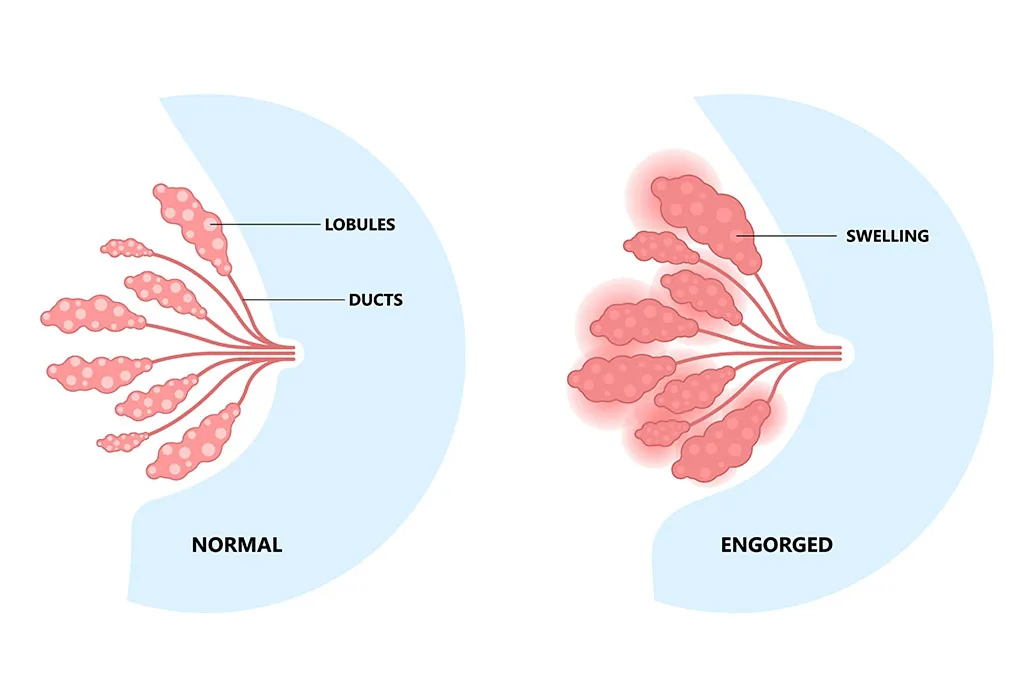
Mature milk begins to fill your breasts during the first few days after birth, causing the tissues to swell. This is perfectly normal. When babies are allowed to feed when they want, breastfeeding can often pass without too much discomfort. But if your baby is not fed when they want, the breasts become too full, resulting in engorgement.
5. Thrush
Thrush is a fungal infection that can develop due to the sweet, warm and moist environment created while your baby suckles at your breast. This can cause both your nipples to become infected and can be painful. Seek medical help if you feel the tingling sensation could be related.
How to Deal With Tingling of Breast at Home?
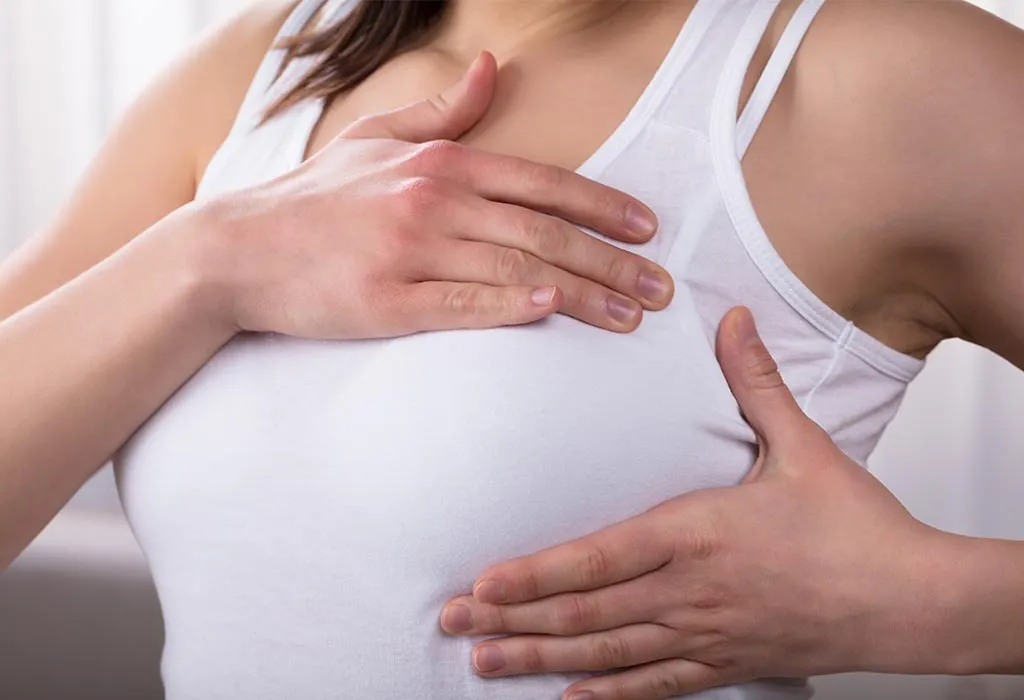
There are some simple ways to deal with the tingling in your breasts right from the comfort of your own home.
1. Keep a Consistent Feeding Schedule
Newborn babies need to be fed every three hours, meaning they need to be fed at least 8 to 12 times a day (3). Sometimes, all a mother needs to do is stick to a consistent and regular feeding schedule to be able to manage the tingling sensation without any problems. By strictly sticking to a schedule, you will eventually find that your milk let-down reflex will align with feeding times. This is important to ensure that you experience as little discomfort from it as possible.
2. Warm Compress or Warm Shower
Warmth has a soothing effect on engorged or infected breasts; medical experts highly recommend warm showers or a warm compress as an easy way to get relief from home (4). Soak a towel in warm water, gently place it over the affected parts, and hold it for five minutes.
3. Breast Massage
Massaging your breasts helps to encourage the milk to flow freely through the milk ducts, so it is very likely to be able to give you relief from any tingling in the breasts. Massaging straight from the top of your breast to your nipple is an excellent way to help. Make sure to use gentle and slow movements on your breasts.
4. Change in Diet
A person’s diet plays a direct role in the body’s condition. Different people have different reactions to food, so changing your diet a little may be something that you need to do to manage the tingling sensation at home. Some women have found that they experience less tenderness in the breast during breastfeeding when they reduce their intake of caffeine and salt.
When to See a Doctor for Breast Tingling Problems
The tingling sensation during breastfeeding is caused by the milk let-down reflex, making it easy to manage at home. However, there are other times when the tingling could result from something more serious. You should visit a doctor if you are experiencing the following symptoms:
- The shape of the nipple changes.
- There is a burning sensation in the breast or nipple
- The breasts begin to dimple or form a lump
- A rash resembling eczema develops around the areola or on it.
- Nipples are reddening
- Painful sensation in the breast
- A discharge that oozes from the nipple
FAQs
1. Can tingling in breasts be a result of medications taken during pregnancy or the breastfeeding phase?
Some medications taken for hormone replacement therapy, birth control, or mental illness treatment may cause tingling or pain in breasts (5).
2. Can pumping my breasts every time they tingle help?
When a mother feels a tingling sensation in her breast, it means her body is releasing milk, signalling that it’s time for her baby to feed. Sometimes, mothers may feel a strong rush of milk during or between feedings, known as the let-down reflex. Having too much milk, called oversupply, can make breasts feel heavy or full. To ease this, it’s good to gently pump some extra milk. But be careful not to pump too much, as it can make the breasts produce even more milk (6) (7).
3. Is it common to experience tingling in one breast only, or should it be in both?
Breast pain or tingling can occur in one or both breasts, either regularly or irregularly. This can be caused by changes in breast tissue known as fibrocystic changes (8). So, nothing to worry about. However, if there is sharp pain continuously in one breast only, then you should get it diagnosed.
4. Is it possible for my lifestyle to cause tingling in my breasts other than some medical condition?
Drinking high-caffeine drinks, taking excess stress, and smoking are some lifestyle factors that may increase the chances of discomfort in breasts, including breast tingling or pain (9).
5. What medical examinations might a doctor suggest for someone experiencing tingling in breasts?
First, the doctor will check your breasts and ask you some questions to understand why your breasts tingle during breastfeeding or pain. They might recommend a mammogram or ultrasound to learn more about what’s going on (5).
As we have seen, the tingling sensation in the breast during breastfeeding is a normal occurrence. However, it is wise to stick to a consistent schedule while breastfeeding and pay attention to the condition of your breasts. If you notice any rash forming or feel like the tingling breasts during nursing are closer to pain or a burning sensation, please visit your doctor at the earliest.
References/Resources:
1. Transitional Milk and Mature Milk; American Academy of Pediatrics; https://www.healthychildren.org/English/ages-stages/baby/breastfeeding/Pages/Transitional-Milk-and-Mature-Milk.aspx
2. Breast Milk Production; Shutter Health; https://www.sutterhealth.org/health/breastfeeding/milk-production
3. How Often to Breastfeed; Shutter Health; https://www.sutterhealth.org/health/breastfeeding/how-often-to-breastfeed
4. Arora. S, Vatsa. M, Dadhwal. V; A Comparison of Cabbage Leaves vs. Hot and Cold Compresses in the Treatment of Breast Engorgement; Indian J Community Med.; PubMed Central; https://www.ncbi.nlm.nih.gov/pmc/articles/PMC2763679/; July 2008
5. Breast pain; MedlinePlus; https://medlineplus.gov/ency/article/003152.htm
6. Your Guide to Breastfeeding; U.S. Department of Health and Human Services Office on Women’s Health (OWH); https://www.uncfsu.edu/assets/Documents/Office%20of%20Legal%20Affairs/Title%20IX/your-guide-to-breastfeeding.pdf
7. Breastfeeding Your Baby; UNM Hospital; https://hsc.unm.edu/health/patient-care/womens-health/maternity-care/doc/how-to-breast-feed-your-infant-english.pdf
8. Breast pain: Not just a premenopausal complaint; Harvard Health Publishing; https://www.health.harvard.edu/pain/breast-pain-not-just-a-premenopausal-complaint; July 2020
9. Breast Pain (Mastalgia); Cleveland Clinic; https://my.clevelandclinic.org/health/diseases/15469-breast-pain-mastalgia
Also Read:
Itchy Breast while Breastfeeding
Changes in Breast after Breastfeeding
Breast Compression during Breastfeeding
Was This Article Helpful?
Parenting is a huge responsibility, for you as a caregiver, but also for us as a parenting content platform. We understand that and take our responsibility of creating credible content seriously. FirstCry Parenting articles are written and published only after extensive research using factually sound references to deliver quality content that is accurate, validated by experts, and completely reliable. To understand how we go about creating content that is credible, read our editorial policy here.







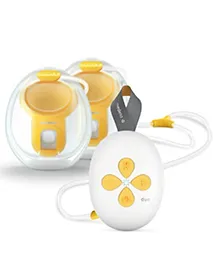

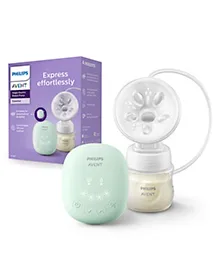
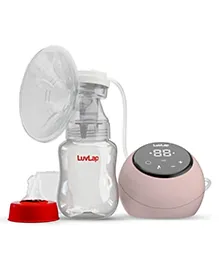
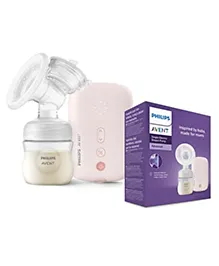

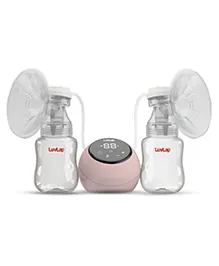
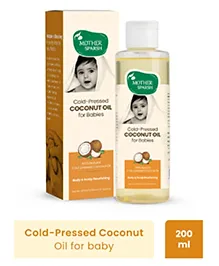
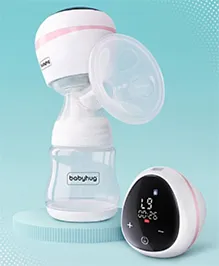

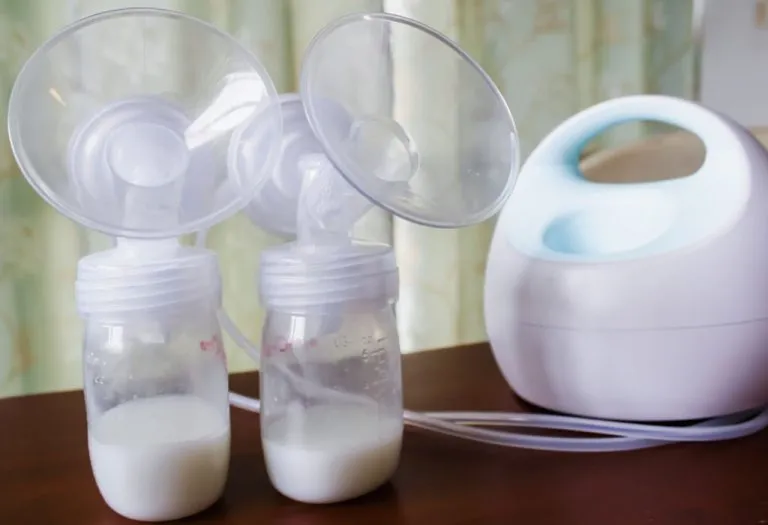
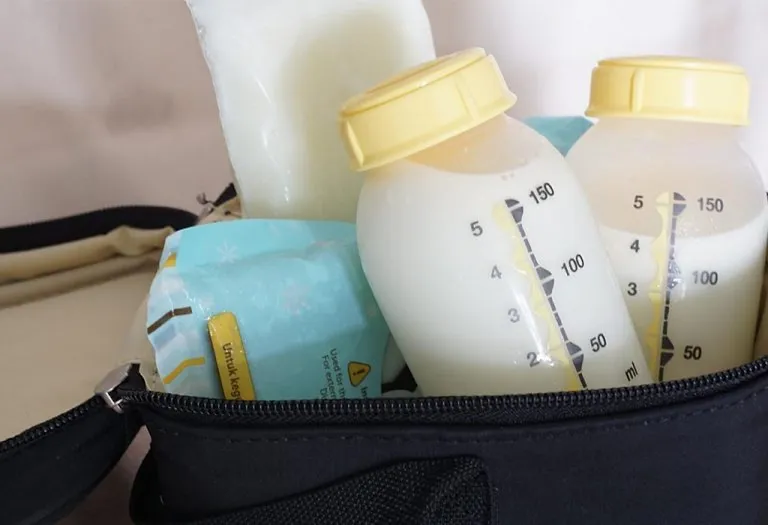
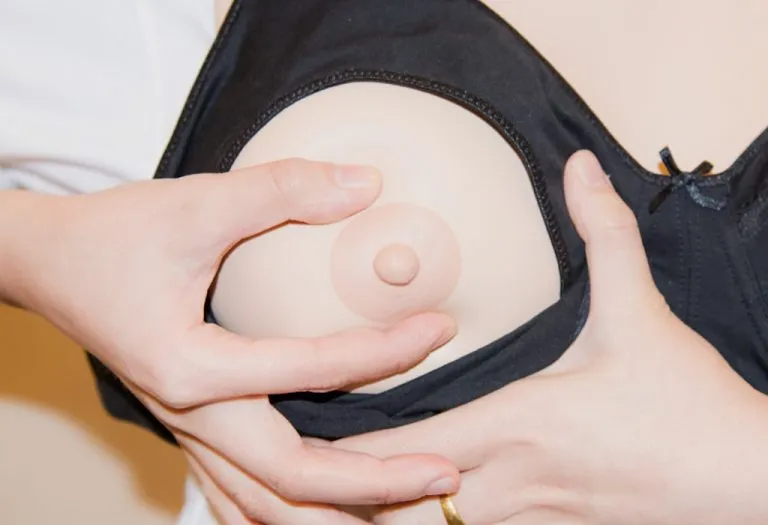



.svg)


















